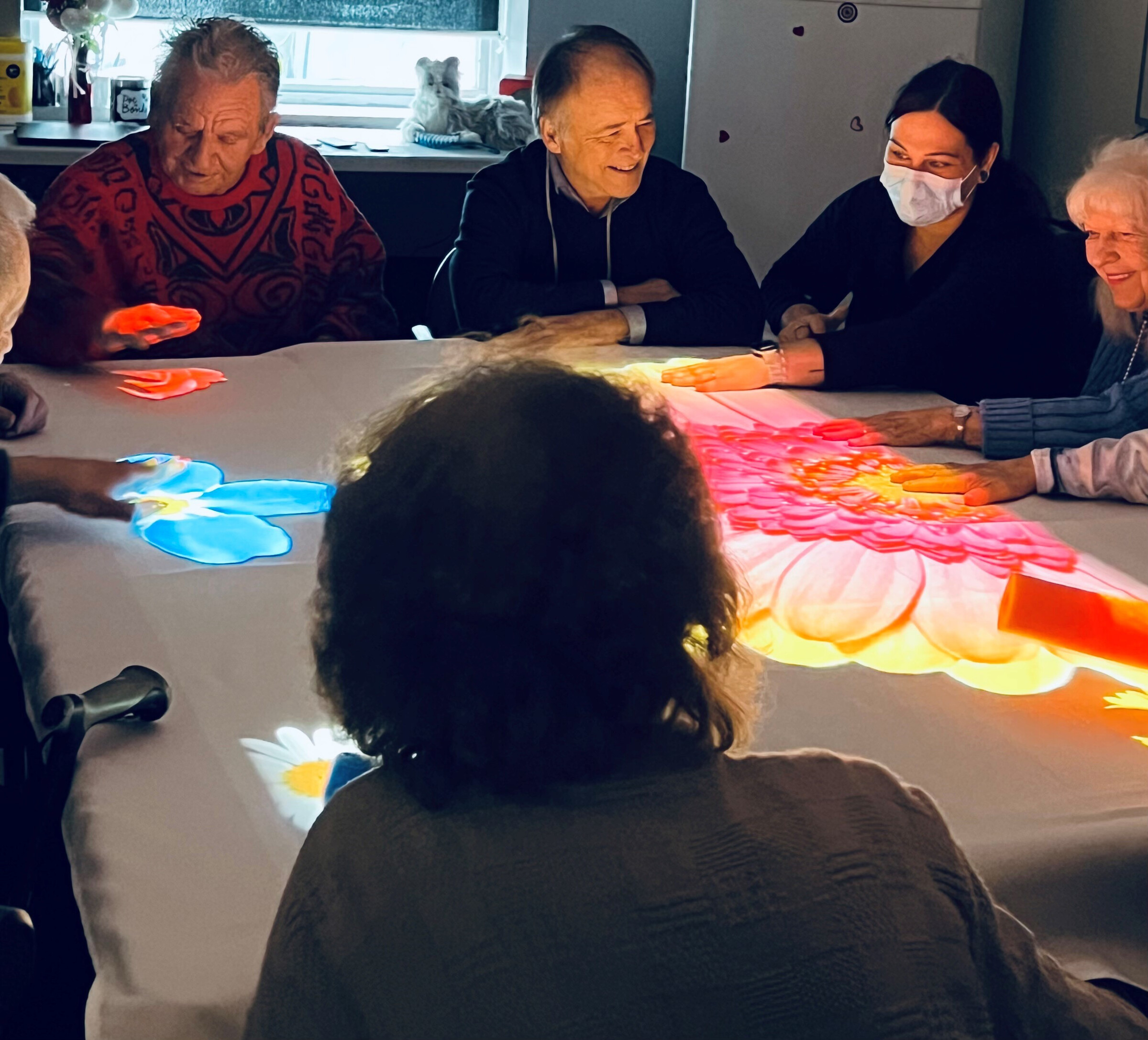health. According to the Federation of Quebec Alzheimer's Associations (FQSA), 170,000 Quebecers currently suffer from Alzheimer's disease. In 2050, it is estimated that this number will rise to 360,000 Quebecers, an increase of 145% in cases compared to 2020. In the face of this crisis, the Alzheimer's Association of Hautes-Richelieu (SAHR) is demanding that the budget of its main funder be allocated to it. Either to meet her specific needs or cognitive stimulation provided by her team of trained and qualified professionals.
Since there is no cure for Alzheimer's disease, cognitive stimulation remains the best ally for the affected person and their loved ones.
Motivational activities provided
SAHR provides comfort and stimulation services at home and at its four activity centers.
Among the stimulating activities offered there are many cognitive games, the Tovertafel interactive table, physical activities such as dance therapy or chair yoga, pet therapy, art therapy and others.
In addition, the motivational activities provided by SAHR at home are personalized.
“Our home companions and activity center facilitators do more than just monitor and provide comfort to caregivers. In addition to ensuring the safety and comfort of the injured person and assisting with daily routines, they respond to individual stimulation needs, counsel families, manage sometimes difficult situations, and adapt daily activities, Which is becoming increasingly cumbersome,” explains the General Manager. From SAHR, Natalie Mercier.
The importance of cognitive stimulation
Cognitive stimulation makes it possible to engage different areas of the brain through activities in order to maintain or improve cognitive functions such as memory, attention, language, problem solving, visuospatial functions, and decision-making.
Studies have shown that cognitive stimulation can slow the progression of disease symptoms, improve quality of life and enhance the independence of sufferers. In fact, cognitive stimulation activities can help maintain brain connections and maintain mental abilities for as long as possible, SAHR specifies in a press release.
Psychological comfort
Cognitive stimulation also has the effect of strengthening self-confidence and enhancing the emotional well-being of those affected.
It helps reduce challenging behaviors such as agitation, anxiety, and depression and promotes restful nights for both the affected person and their caregiver.
“Thanks to our services, affected people can continue to enjoy life, carry out their usual social roles such as work, engage in an activity or hobby, volunteer work, and even maintain an interesting social life. But above all, you need to stay at home longer and avoid early transition.” To residential centres.
Invest in motivation
However, according to Ms. Mercier, investing in cognitive stimulation reduces the pressure on Quebec's health system because it enhances the independence of people with neurocognitive disorders, such as Alzheimer's disease. We can also read in a document from the Quebec Federation of Alzheimer's Associations dating from 2021, that the impact of neurocognitive disorders is about $1.5 billion annually, the SAHR determines.

“Music guru. Incurable web practitioner. Thinker. Lifelong zombie junkie. Tv buff. Typical organizer. Evil beer scholar.”







More Stories
On strike to leave MDA Space of the Moon
SpaceX unveils its first spacesuit
Three members of the UdeM community receive the Academic Palme